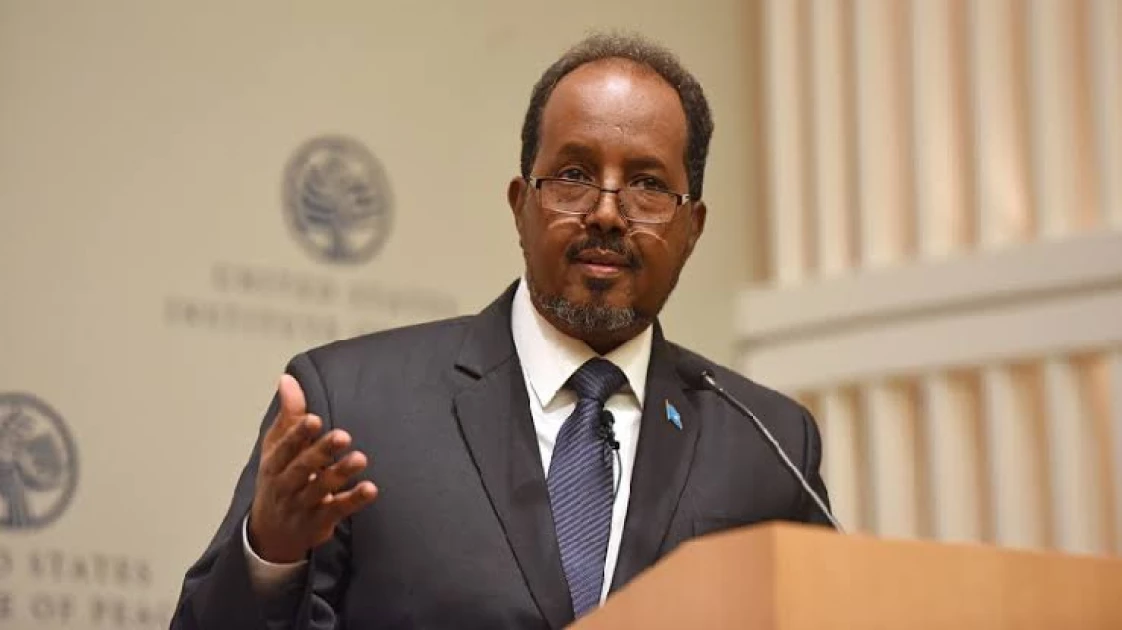Region urged to act as Somalia’s transitions face growing risks

Somalia President, Hassan Sheikh Mohamud. [Phoyo / Courtesy]

Audio By Vocalize
As regional leaders prepare to attend the United Nations General Assembly in New York this month, a key side meeting will focus on securing financing for the African Union’s new mission in Somalia, AUSSOM.
Observers caution that pledges made abroad may not be enough if Somalia’s political and security transitions continue to falter at home.
Without timely regional engagement, the country risks slipping into deeper instability with consequences likely to spill across its borders.
For over a decade, Somalia’s electoral cycles have followed a familiar but fragile script: delays, heightened political tensions, and eventual elite bargains often facilitated by international partners.
This year, however, that cycle appears more uncertain. The federal government is undertaking a constitutional review aimed at reshaping the electoral system.
Supporters frame the initiative as a step toward democratization, but critics worry the process has lacked broad consensus, sidelining some stakeholders and federal member states.
The push for universal suffrage is ambitious but comes at a time when Somalia’s institutions remain fragile.
Security forces are not yet unified, state institutions are unevenly developed, and conditions for a nationwide vote remain challenging. Analysts warn that pushing forward without wider agreement risks deepening political divides at a moment when cooperation is most needed.
Security developments compound these challenges. In 2022, the government launched military operations against al-Shabaab that initially raised hopes of a decisive shift.
Progress, however, proved difficult to sustain. Somali forces have been stretched thin, and reliance on community defense groups created both short-term gains and long-term vulnerabilities.
Many of these local forces, tied to community leaders rather than central command, struggled to maintain control under pressure.
In several areas, al-Shabaab has since regained ground, undermining confidence in the government’s ability to consolidate security.
The strain has also been felt in federal relations. Disagreements over power-sharing and resource allocation have tested ties between Mogadishu and some federal member states.
Where cooperation is lacking, political and security initiatives face significant obstacles. The elite consensus that previously carried Somalia through difficult transitions now appears weaker, raising questions about how the next electoral cycle will be managed.
Meanwhile, the international safety net that Somalia has relied on in past crises is less assured. The United Nations mission is transitioning, donor fatigue is evident, and AUSSOM is still being consolidated. Into this gap, bilateral partners such as Turkey have stepped up with investments in infrastructure and training for Somali forces. Yet external support cannot replace the need for inclusive domestic consensus and regional engagement.
Somalia’s immediate neighbours Kenya, Ethiopia, and Djibouti retain considerable influence but have so far played limited roles in shaping the current transition.
Analysts caution that instability in Somalia will not remain confined within its borders. The risks of refugee movements, cross-border extremist activity, and illicit trafficking remain pressing concerns for the wider Horn of Africa.
The lesson from history is clear: delayed engagement often leads to costlier interventions. Regional frameworks, from IGAD initiatives to AU peacekeeping, have been activated in the past only after crises escalated.
A more proactive approach, undertaken now, could help stabilize Somalia’s political transition and reinforce security gains before they unravel.
Somalia’s trajectory remains uncertain, but its future is closely tied to that of the region. For neighbors and international partners, the choice is between early, preventive engagement or costly, reactive measures later.
The stakes extend beyond Somalia itself to the stability of the wider Horn of Africa.
The writer is a political analyst based in Nairobi


Leave a Comment